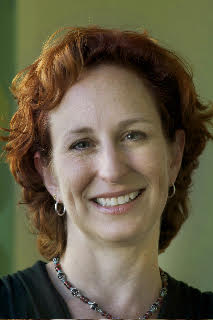Last April, I traveled to Washington D.C. to visit my son at college. Georgetown University is a great place and, by all accounts, safe. We were in the bookstore when, suddenly, the entire student center was on lockdown. A policeman explained that the night before two students had been robbed at gunpoint outside the business school. Someone just ID’ed the suspect wandering through the student union.
“It’s the city,” my nineteen-year-old son said.
“That’s not an excuse…” I replied.
Hours later, we heard through Twitter that the suspect had been arrested, but by then – I’d had enough! I had to do something…and yet, short of locking my son safely in his room forever…what could I do?
This week’s Torah reading gave me a push in the right direction. The text begins with the death of Sarah. Sarah passed away in Hebron and Abraham “came” to purchase a burial plot and mourn for his wife. The words “and Abraham came” are the subject of much debate and conjecture, as the phrasing seems to indicate he wasn’t there when his wife died. Some of the rabbinic commentators believe that he “came” means Abraham was in fact there and began to act on her behalf. But Rashi, amongst others, understood that the word choice raised the question: Where was Abraham when Sarah died?
The rabbis of the midrash suggested she was at home. She’d woken up that day to find that Abraham had taken their son Isaac to be a sacrifice for God – God’s ultimate test of faith. And then, while Sarah waited to hear if her son was alive, her soul left her body. Sarah was literally “scared to death” by the possibility that Isaac had been killed.
In the wake of my experience at Georgetown, I hear Sarah’s voice all around me. “Sarah” waited to hear about her children in Aurora, Colorado. She cried in Charleston, South Carolina. Her soul was lost in Umpqua, Oregon. As I write this, schools are on lockdown in Connecticut. Mothers and fathers and family and friends are standing in Sarah’s shadow every time someone opens fire on college students in a classroom, moviegoers at the theater, high school students or kindergarteners at school.
Like Sarah, parents everywhere are waking up in the morning to discover that their children are no longer safe, and the wait to hear if they will return is agonizing…
At first glance, the Torah seems to imply that Sarah did nothing. We can respond to the reading by blaming Sarah for her inaction. Blame Abraham for following his religious beliefs blindly. Blame Isaac for his simplicity. And blame God for putting them all through this. No matter how we twist the story – no one comes out a hero.
And that’s the lesson.
Heroism comes from outside the text, not from within it. A simple reading is never enough. The Torah text is a starting point to show us that when we see inaction, we are required to talk about what we can do to right injustices. We must do what we can to stop a potential slaughter. This is what God demands of us. The Akeda wasn’t only a test for Abraham, Isaac, and Sarah…it is a test for us today.
I began to honor Sarah by giving money to the Brady Campaign to Prevent Gun Violence and Americans for Responsible Solutions. But every few months, when another mass shooting lit up the news, it felt like that wasn’t enough. I joined my local chapter of Moms Demand Action for Gun Sense in America, a group dedicated to advocating stronger gun control laws. I went with them to a mall parking lot to explain to shoppers how to contact their congressional leaders. After a few exhausting hours, I walked away uncertain if what I was doing would ever make a difference. But I also knew that I wasn’t going back to wait in Sarah’s tent. I signed on to make phone calls. I have a training meeting next week.
Sarah died not knowing if her son lived. Chayai Sarah asks us to consider how many more Isaacs will be sacrificed before we put an end to this trial. No parent should have to wait to hear if their child’s life was sacrificed. There’s a groundswell happening, and we need to add our voices to the masses. It’s time for common sense gun control laws to strengthen our nation’s collective soul. May our ancestor Sarah’s worry for her child’s life inspire us to take action to protect our own children today.
Stacia Deutsch is a rabbi and author of more than 100 children’s books including the original Blast to the Past series, bestselling movie novels including Hotel Transylvania 2, Nancy Drew and Boxcar Children mysteries, and Ever After High tie in books. Find her at www.Staciadeutsch.com, @staciadeutsch, and Facebook.com/staciadeutsch

